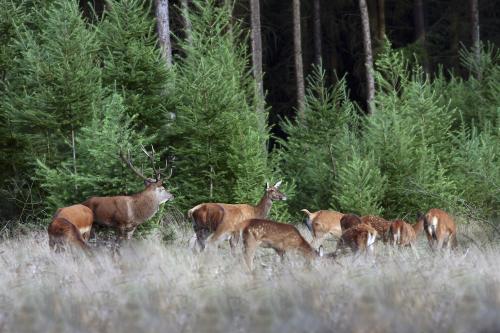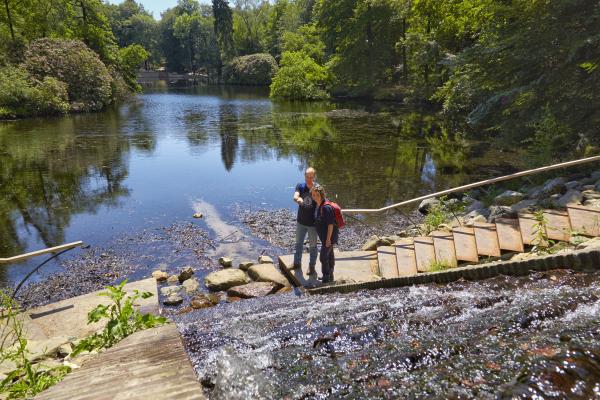Province(s)
Status
Surface
Landscape
Hills and Vistas
Nowhere else on the Veluwe will you find so many hills and be able to see as far as in the Veluwezoom National Park, which is part of the large contiguous nature reserve of the Veluwe. In the unspoiled nature with forests, heathlands, sand drifts, and estates, you may encounter wild animals such as red deer and wild boar. A good starting point for your visit is the visitor center in Rheden, east of Arnhem. You can also easily reach this center by train.
Plenty of (wild) animals
Always wanted to go on a domestic safari? In National Park Veluwezoom, there's a good chance you'll spot wild animals. Wild boars, roe deer, red deer, and fallow deer inhabit the area. You might also encounter Scottish Highlanders and Icelandic horses. On the heather hills near the Posbank, the sheep of the Rheden sheep flock graze. They ensure that the area doesn't become overgrown. Point your binoculars upwards, too. Maybe a black woodpecker, raven, or nightjar will fly by.
Phenomenal view
Walk over the tops and through the valleys of the famous heather hills near the Posbank. Feel the slopes in your calves and enjoy the phenomenal view. In the early morning or at dusk, there's a good chance you'll see the deer or wild boars. Go exploring on foot, by bike, or on horseback and be surprised.

Floodwaves from before the Ice Age
In the time when mammoths still existed, around 200,000 years ago, a glacial sheet from Scandinavia pushed large masses of soil and stones ahead of it. After the ice melted, these remained as push moraines. Meltwater and wind had free play and eroded the landscape. The ridges became covered with sand. The coarsest sand ended up on the tops and slopes where the wind blew the hardest – now you mainly see heath, drifting sands, and Scots pines there. In the sheltered areas, the fine, so-called loess particles settled. There, you now find beech forests.
Contribution of the wolf
In recent years, wolves have also been regularly spotted in Veluwezoom. Wolves contribute to more diversity in nature. How do they do that? Their prey, such as red deer, fallow deer, and wild boars, behave differently. They avoid areas where they feel unsafe because the wolf might be lurking there. In those places, young trees have a chance to grow into forest giants. The prey remains left by the wolves provide opportunities for scavengers like the raven. However, the chance of seeing wolves is small because they are very shy.
Highlights
Discover the landscape of Beekhuizen or explore the wild forest
Do you want to visit the park?

Visitor Center Veluwezoom
Heuvenseweg 5a, 6991 JE Rheden
Do you want to know more about Veluwezoom National Park?
Discover all the current information on the park's website. From the activities calendar and hiking routes to contact information and more.


